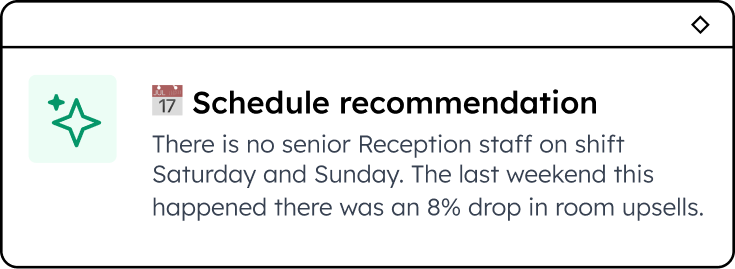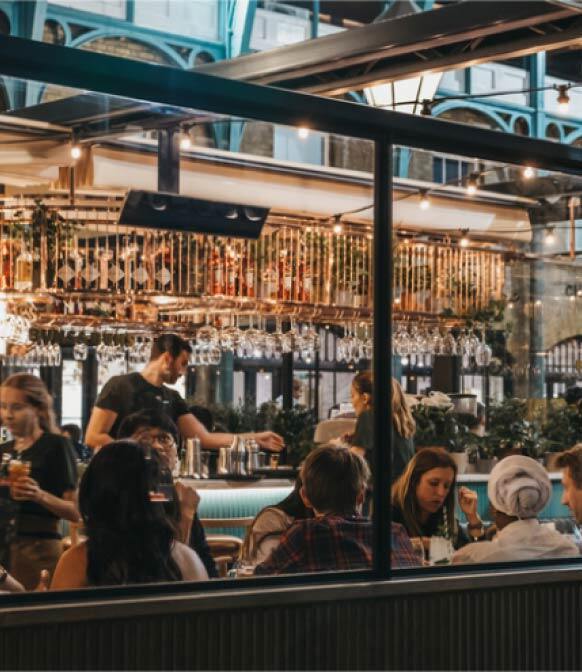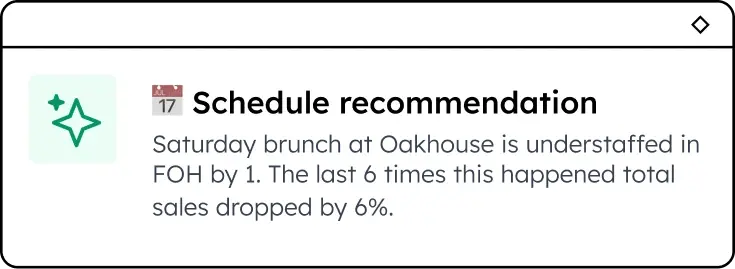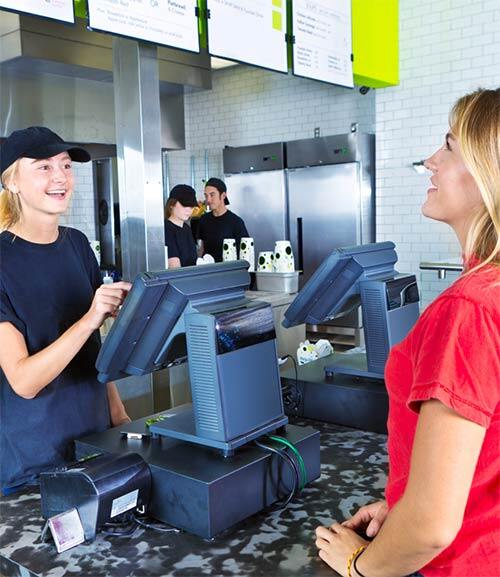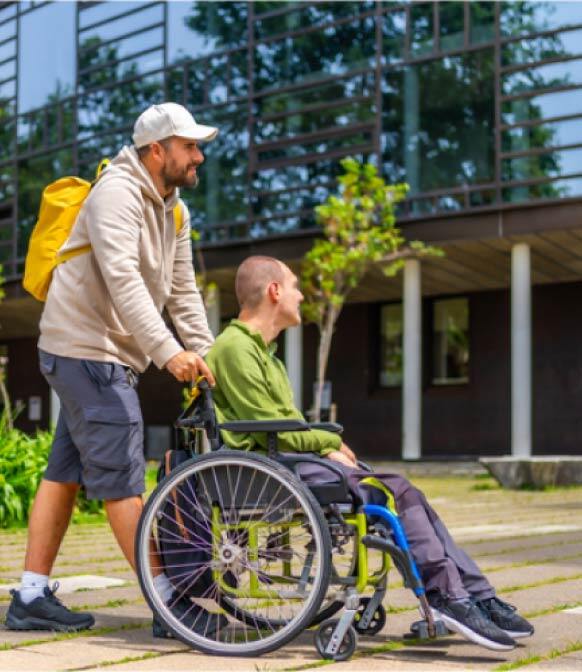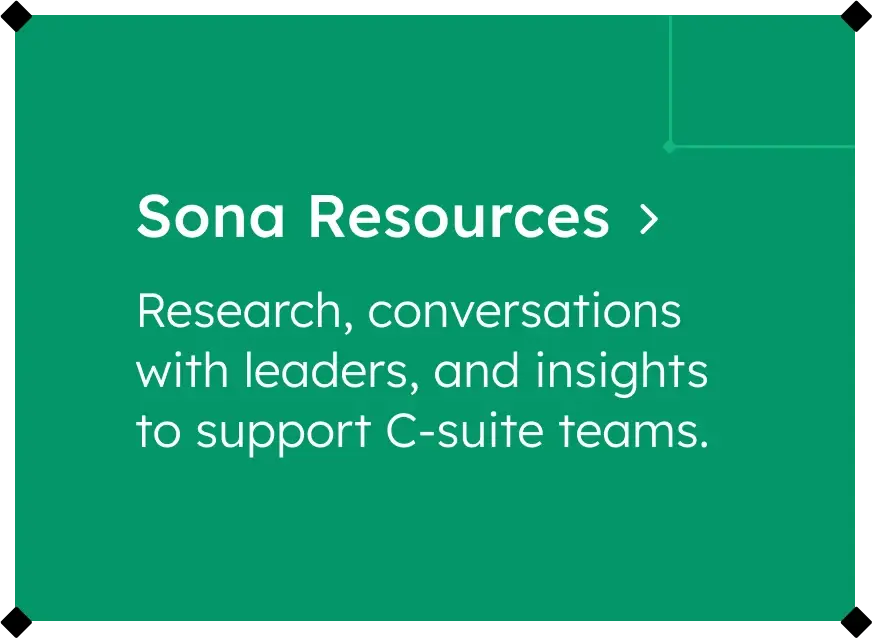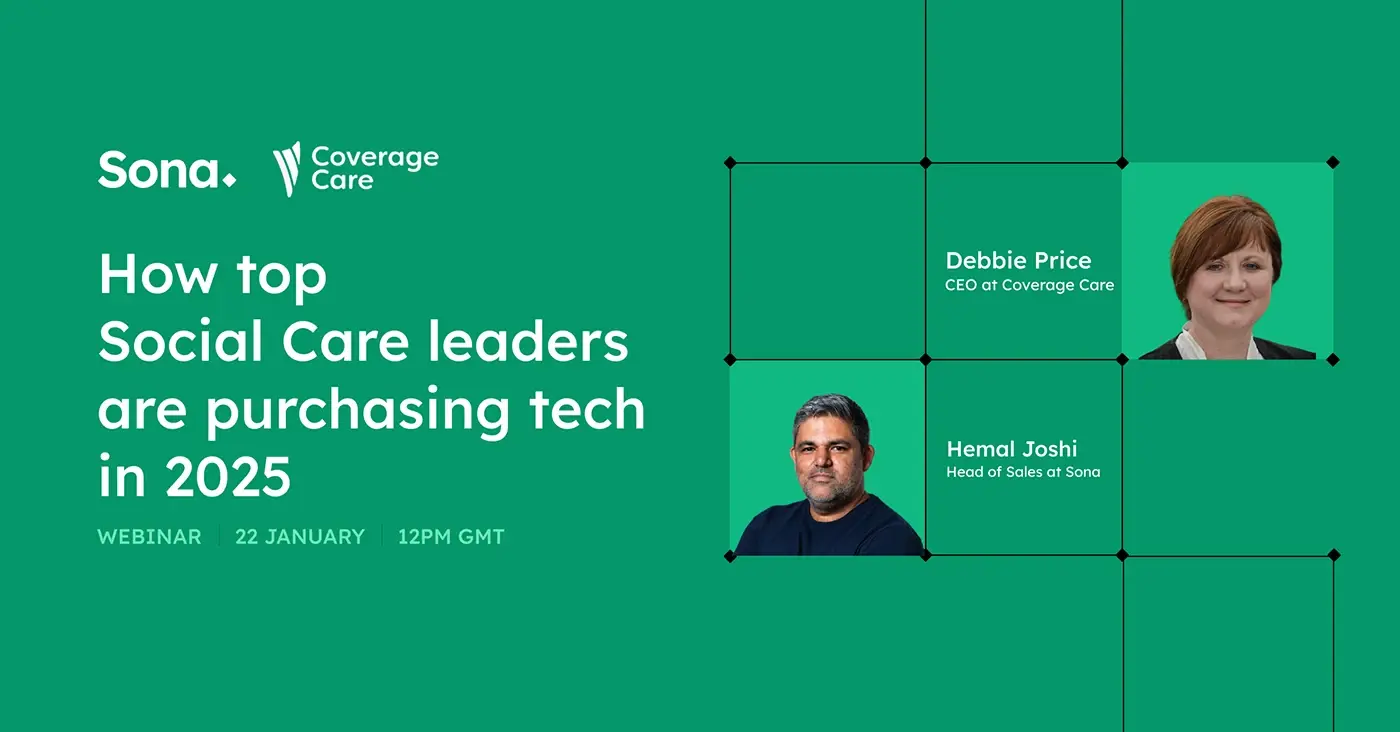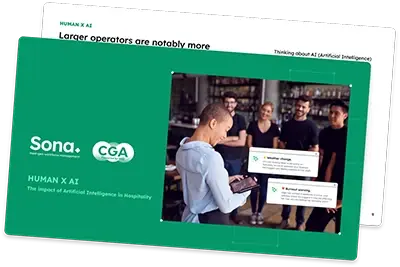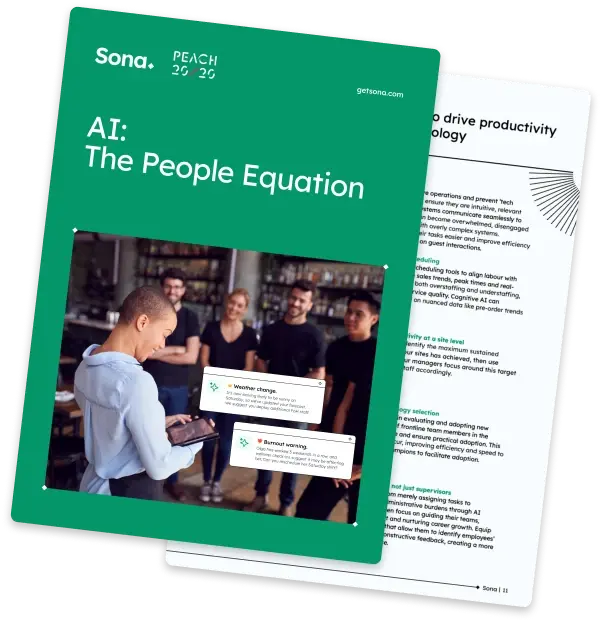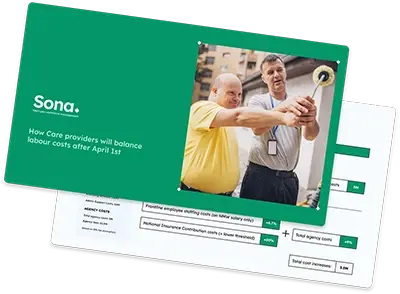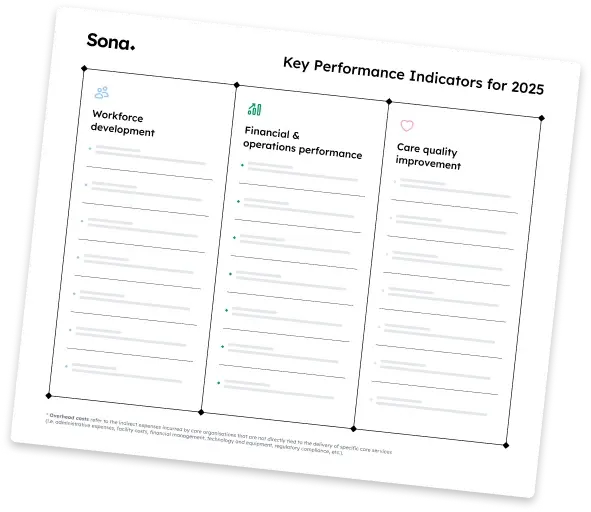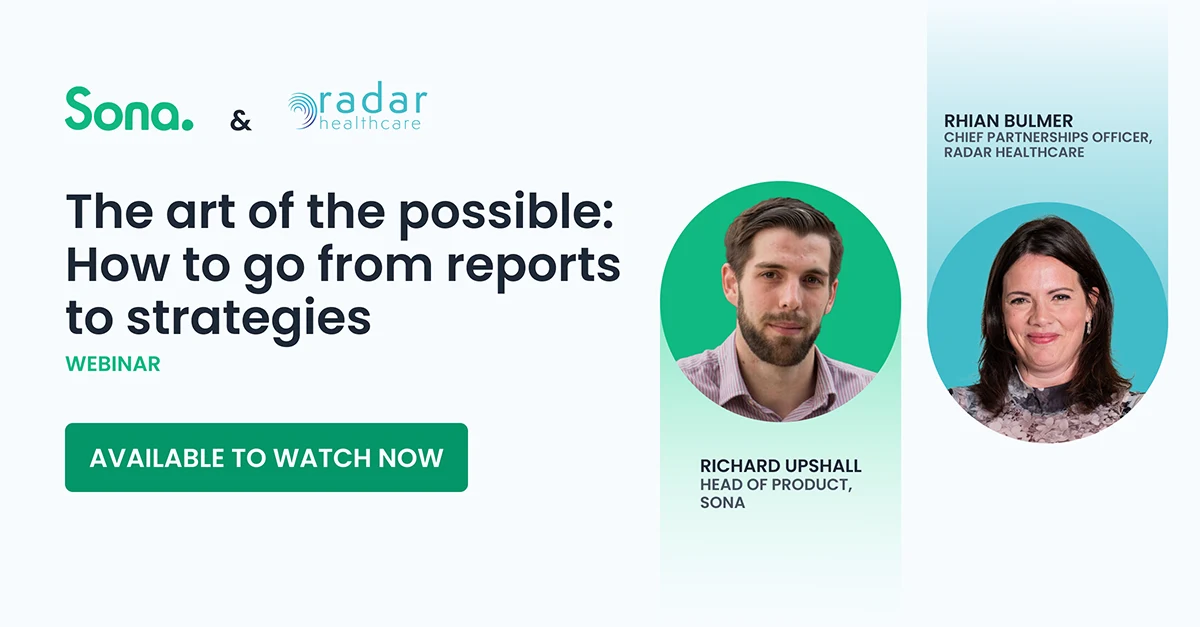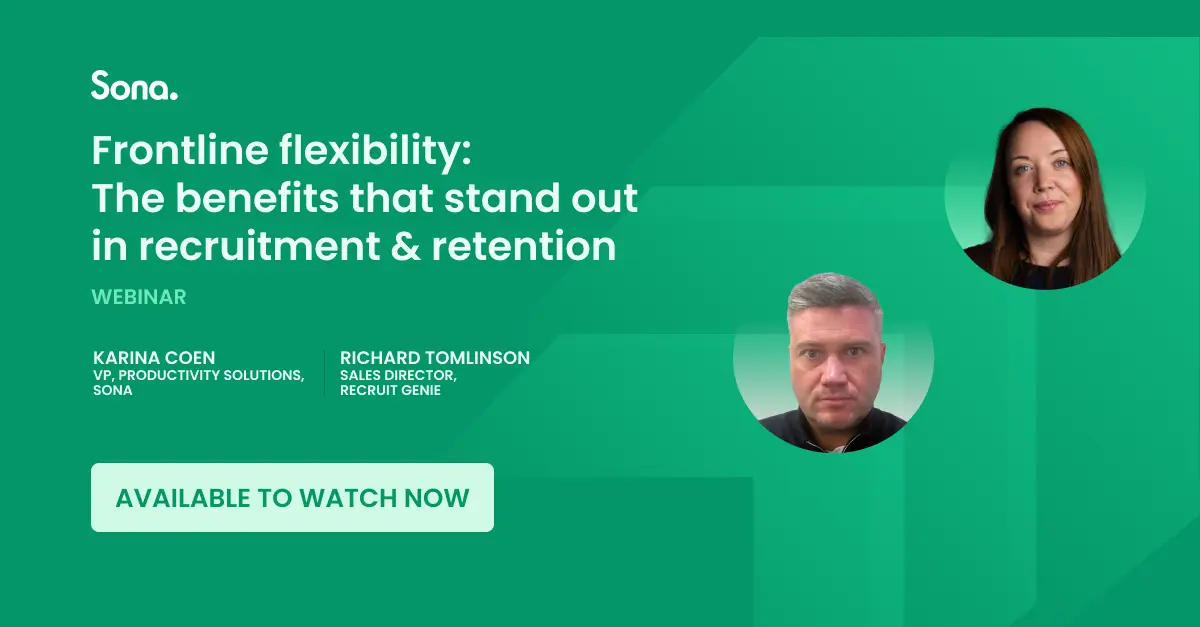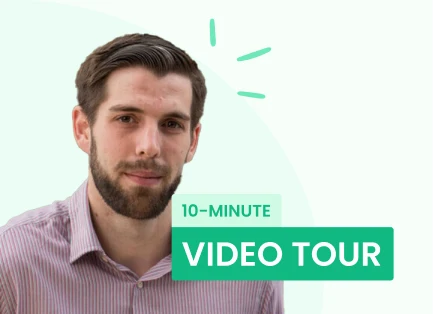Live & Digital events
Our regular online and in-person events tackle some of the biggest people challenges with the help of some of the sector's leading trailblazers.
Demystifying AI - how does next-generation forecasting work for large Hospitality operators?
20 August 2024 | 12:00PM GMT
%20copy.webp)
Harry Salmon
VP of AI
Sona

Karina Coen
VP of Labour Productivity
Sona

Nathan Key
Strategic Account Executive
Sona
11:00AM GMT
Tailored to decision makers and senior executives in Operations, Finance, and HR, this webinar will take a cross-sectional look at:
- What makes next-generation forecasting different from past iterations
- The revenue potential of labour productivity engines built on next-gen technology
- The practical steps of deploying these solutions

%20copy.webp)
Harry Salmon
VP of AI
Sona

Karina Coen
VP of Labour Productivity
Sona

Nathan Key
Strategic Account Executive
Sona
11:00AM GMT
Further information
Join us for an opportunity to discuss AI innovations with our expert panel:
Harry Salmon has been building and scaling machine learning solutions for over a decade, working to enable large operators to forecast demand with maximum accuracy.
Karina Coen is the foremost Labour Productivity expert in the UK, and has worked with leading operators in the restaurant and casual dining space to help them increase their operational efficiency.
Nathan Key has been interviewing leading Hoteliers on their growth strategies and tech deployment, focusing on how next-generation solutions can be successfully implemented.
Recording now available
Key learnings
Contents
- Understanding the value of an integrated tech ecosystem
- Prioritising actionable insights over data overload
- Proactively addressing “near misses” to reduce incidents
- Supporting continuity of service through real-time insights
- Preparing for the future: AI, data ethics, and interoperability
- Fostering stakeholder collaboration for successful implementation
Understanding the value of an integrated tech ecosystem
[0:00 - 4:00]
Nathan, Sona's Hospitality Growth Specialist, and Harry, Machine Learning Engineer and VP of AI, kicked off the conversation by emphasising the significance of building tech solutions on modern infrastructures.
“When you build on a modern tech stack, it opens doors to advanced forecasting capabilities,” explained Harry.
Legacy systems, built 15-20 years ago, are often limited by outdated computing power and inflexible designs. In contrast, next-generation platforms can leverage granular, real-time data from diverse sources, such as POS systems, booking engines, and even kitchen management tools. This level of specificity enables highly accurate, location-specific predictions that are critical in dynamic environments like hospitality.
Prioritising actionable insights over data overload
[9:00 - 14:00]
One of the central themes in the discussion was the importance of turning vast amounts of data into specific, actionable insights. Nathan emphasised that advanced forecasting and scheduling should not simply be about generating more data; it should be about helping operators act on the right data at the right time.
“It’s not about cutting labour,” Nathan clarified, “it’s about deploying it efficiently.”
AI-driven models allow managers to automate the more formulaic parts of scheduling, freeing them to focus on the critical 10% where human expertise and creativity can make a real difference.
Harry added, “The goal is to ensure that when managers intervene, they’re adding the most value possible.”
Proactively addressing “near misses” to reduce incidents
[16:00 - 21:00]
The next questions focused on how to reduce potential inefficiencies and errors before they escalate. One main solution was integrating proprietary data (like historical sales trends and operational bottlenecks) with public data (like weather forecasts and local events). This would help the team spot errors while also allowing operators to foresee challenges and adjust in real-time.
Harry noted, “For some locations, rain might drive traffic indoors, while for others, it might empty out the patio.”
The ability to predict nuances like these at a site-specific level allows operators to prepare effectively, avoiding service disruptions and maximising the satisfaction of their guests.
Supporting continuity of service through real-time insights
[21:00 - 26:00]
Forecasting is just the first step; the true power of AI comes from translating those predictions into real-time decisions.
“It’s not just about getting a great forecast,” Harry explained, “it’s about making sure that insight reaches the right person at the right moment.”
By integrating AI tools directly into daily operations, businesses can ensure continuity, even during unexpected fluctuations. The conversation highlighted that AI can assist with adjusting labour reactively and anticipating supply needs, therefore minimising downtime and maintaining a seamless customer experience.
Preparing for the future: AI, data ethics, and interoperability
The rise of AI brings exciting opportunities but also legitimate concerns, particularly regarding data security and privacy.
Harry stressed that while AI can take on repetitive tasks, it’s not meant to replace human judgement.
“AI should complement what people are doing,” he said, noting that it’s about freeing up managers’ time to focus on higher-value activities like team motivation and customer engagement.
On data ethics, both speakers agreed that businesses need to handle data carefully, ensuring transparency and safety, especially when dealing with sensitive or proprietary information.
Get the definitive 2024 guide on how AI will impact Social Care, from compliance to forecasting.
Fostering stakeholder collaboration for successful implementation
[35:00 - 40:00]
The conversation ended on a forward-looking note, discussing how technology will evolve in the next few years. Harry envisioned a future where AI systems are not just powerful but seamlessly integrated into everyday operations.
“The information will be there when you need it, and technology will increasingly get out of the way, letting teams do what they do best—creating memorable experiences for their guests.”
The speakers emphasised that successful tech adoption requires collaboration across all levels—from the C-suite to frontline managers—ensuring that business objectives are clearly communicated and reflected in the systems being used.

For a detailed perspective of the tech interdependencies of teams and functions, visit the Hotel tech map here.
As AI continues to reshape the Hospitality landscape, businesses that prioritise actionable insights, invest in integrated tech ecosystems and maintain a focus on human-centred service will be best positioned to thrive.
(This conversation was softly edited for clarity and readability.)
Bring out the best in your team with Sona
See how you can effortlessly streamline staff management across multiple locations with Sona.
Book a demo
